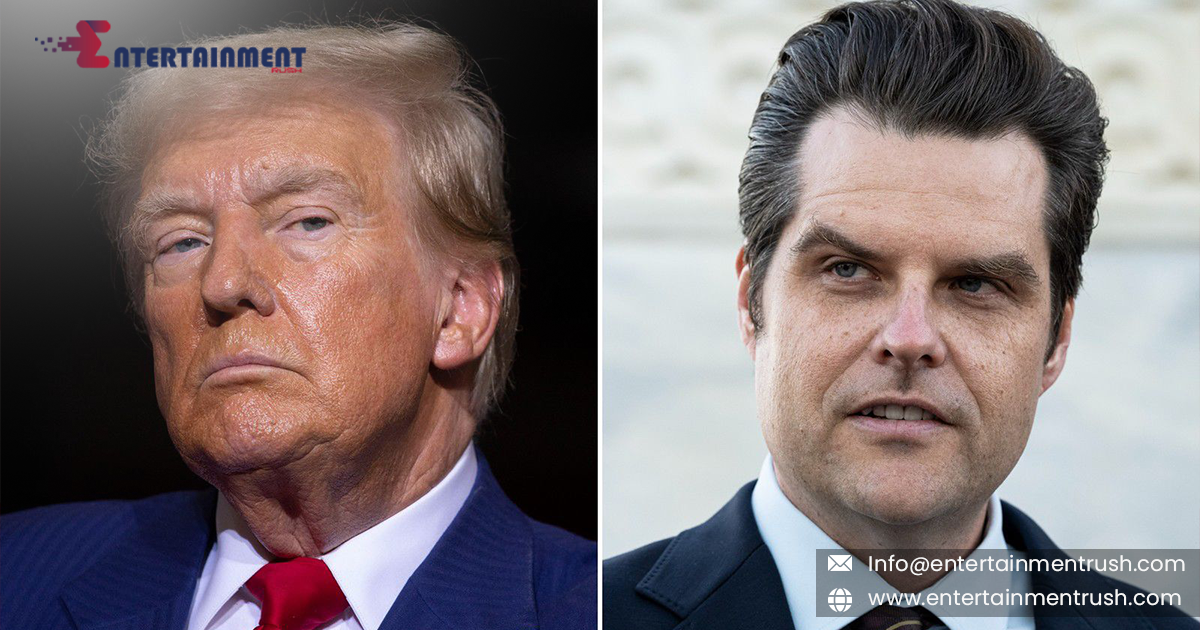Donald Trump is escalating his battle to get Rep. Matt Gaetz confirmed as his attorney general, turning the nomination into a high-stakes political showdown. With the 2024 presidential race heating up, Trump is determined to push his ultra-loyalist ally into the Justice Department, regardless of growing controversy and pushback from within his own party.
Trump has been personally reaching out to senators, urging them to confirm Gaetz early next year. However, his efforts are facing significant resistance from GOP senators who are calling for a full investigation into Gaetz’s past. Allegations involving Gaetz, including an alleged sexual encounter with a minor—which he denies—are at the heart of the debate. Despite the Justice Department’s decision not to press charges after an investigation, the controversy has gained new momentum. A lawyer representing two women who testified before the House Ethics Committee recently claimed that Gaetz paid for “sexual favors,” and one woman reportedly witnessed Gaetz with an underage friend in 2017.
As the Ethics Committee report on Gaetz’s conduct remains a flashpoint, it has become the first significant crisis for Trump’s second administration before it even begins. A few Republican senators could potentially block Gaetz’s confirmation, which could prove pivotal in the Senate, where the GOP will hold the majority next year.
House Speaker Mike Johnson is pressing to prevent the Ethics report from being released, given that Gaetz is no longer a sitting member of Congress. Yet, some Republicans, including North Dakota Sen. Kevin Cramer, are concerned about the consequences of forcing the Gaetz nomination. Cramer questioned whether it’s worth expending political capital to push a nominee with so many unresolved questions, especially when there’s a risk that Gaetz might not secure enough votes.
If Trump presses forward, Republican senators may face a prolonged confirmation fight that could split the party. Some may feel the weight of the MAGA movement, but defending a controversial nominee could backfire in their reelection campaigns, especially in the 2026 Senate races. Traditionally, presidents have backed off from contentious nominees to preserve political capital, but Trump’s approach seems driven by a desire to establish control over his party and his new administration from the outset. For him, backing down on Gaetz might make it harder to secure other controversial picks, including Fox News host Pete Hegseth for defense secretary or Robert F. Kennedy Jr. for Health and Human Services.
Beyond Gaetz, the situation represents a broader test of Trump’s influence. He’s framing the nomination as a direct challenge to the GOP establishment, demanding that senators bend to his will, even as they express concerns about Gaetz’s qualifications and character. Trump’s pick, which has drawn public support from Gaetz and his ideological allies, signals a desire to purge the Justice Department of those he believes have wronged him.
Trump’s handling of the Gaetz confirmation could shape future political dynamics in Washington. If he can force Gaetz through despite the opposition from his own party, it would send a clear message about Trump’s dominance over the GOP and the extent to which his allies are expected to toe the line. Senate Republicans may ultimately face a difficult decision: defy the president-elect and risk his wrath or support a nominee with significant ethical and legal questions hanging over him.
Some senators, such as Maine’s Susan Collins and Texas’s John Cornyn, are calling for full transparency on the Ethics report. They argue that understanding all the facts before the confirmation hearings would be in everyone’s best interest, including the president-elect’s. However, Speaker Johnson maintains that the report should not be released due to Gaetz’s resignation, and suggests the political landscape has changed in the age of social media and 24-hour news cycles.
Trump’s efforts to secure a fast and decisive start to his second term include more than just Gaetz. His strategy of pushing controversial figures—like Hegseth and Gabbard—into top Cabinet positions signals that he intends to reshape Washington in his image. Whether his party will follow him on this journey remains to be seen, but if Trump’s attempt to secure Gaetz succeeds, it will further solidify his hold on the GOP. And, for senators, the pressure will be immense, as they weigh the political risks of crossing Trump in an era when loyalty to him has never been more significant.
